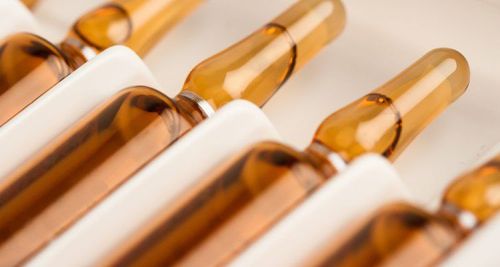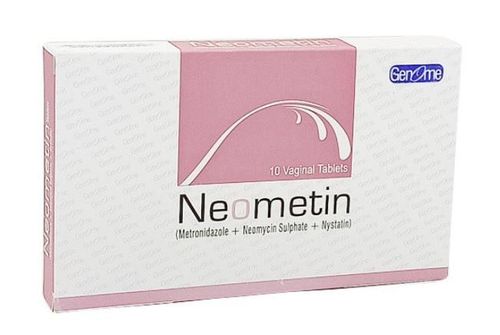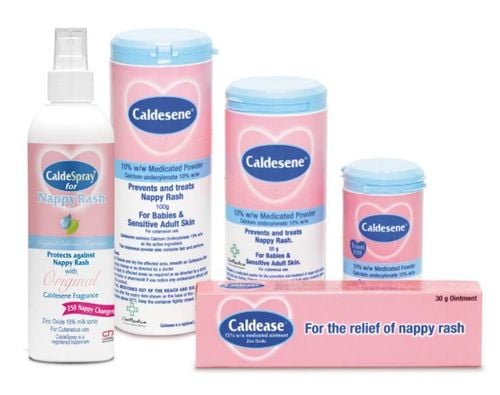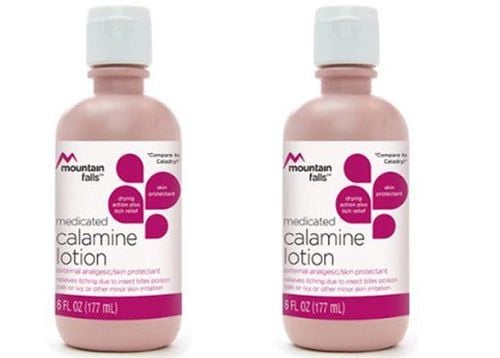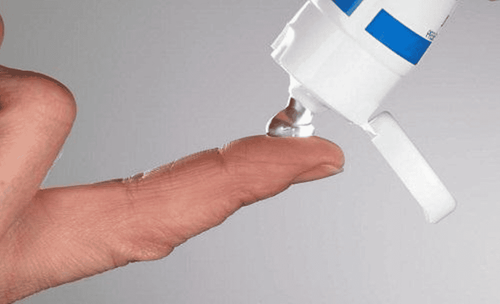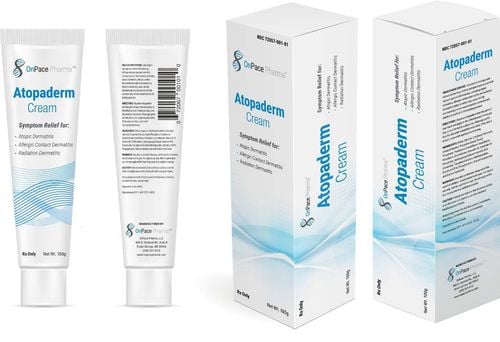This is an automatically translated article.
Trisula is a product of An Thien Pharmaceutical Joint Stock Company. This is a topical cream used in the treatment of a number of dermatological conditions. So what are the uses and doses of Trisula?
1. What is Trisula?
Ingredients in 10g of Trisula drug include: Betamethasone dipropionate 6.4mg, Clotrimazol 100mg, Gentamicin 10mg (as gentamicin sulfate) and excipients just enough 10g. Betamethasone is a corticosteroid with potent anti-inflammatory and anti-allergic properties, used in the treatment of corticosteroid-responsive disorders. Gentamicin is an aminoglycoside antibiotic used in infections caused by susceptible bacteria. Clotrimazol is a synthetic antifungal agent of the imidazole group, with a spectrum on Trichophyton rubrum, Trichophyton mentagrophytes, Epidermophyton floccosum, Microsporum canis and Candida species.
2. Indications of the drug Trisula
Trisula is indicated in the following cases:
Trisula is used to treat inflammatory skin lesions caused by allergies, bacterial or bacterial infections Primary or secondary bacterial skin infections caused by microorganisms Gentamicin-susceptible bacteria Skin fungal infections caused by Clotrimazole-sensitive fungi Interstitial and toenail fungus Onychomycosis, Candida albicans vulvovaginitis Candida albicans vulvovaginitis Psoriasis, inflammation contact dermatitis, seborrheic dermatitis, solar dermatitis, neurodermatitis, eczema with or without superinfection, anogenital inflammation Redness of the skin in the armpits, groin, buttocks, fingers and toes Inflammation skin due to insect bites or lice bites
3. Dosage and usage of Trisula
Patients should apply a moderate amount of cream gently on the affected skin area twice a day, morning and evening. Patients need to apply the medication regularly.
4. What are the contraindications of Trisula?
Trisula drug is contraindicated in patients with hypersensitivity to drug components, aminoglycoside antibiotics, scratched skin, outer ear eczema with perforated eardrum, ulcers.
5. Side effects of the drug Trisula
Trisula may cause side effects including decreased red blood cells, erythema, exudate, pruritus, ichthyosis, urticaria, systemic allergies. When Trisula is used on a large scale and with a pressure bandage, patients may experience skin irritation, dryness, acne, hypopigmentation, folliculitis, hirsutism, superinfection dermatitis, skin atrophy.
6. Notes when using Trisula
Store Trisula in a cool, dry place, away from high temperatures and direct sunlight. Do not use for people who are sensitive to the ingredients of the drug. Note cross-allergenicity in the aminoglycoside group. Avoid applying Trisula to wounds, damaged skin, large areas, pressure bandages. Above is information about uses, dosage and precautions when using Trisula. If you have any questions or need more information about your medication, you should contact your doctor or pharmacist.




